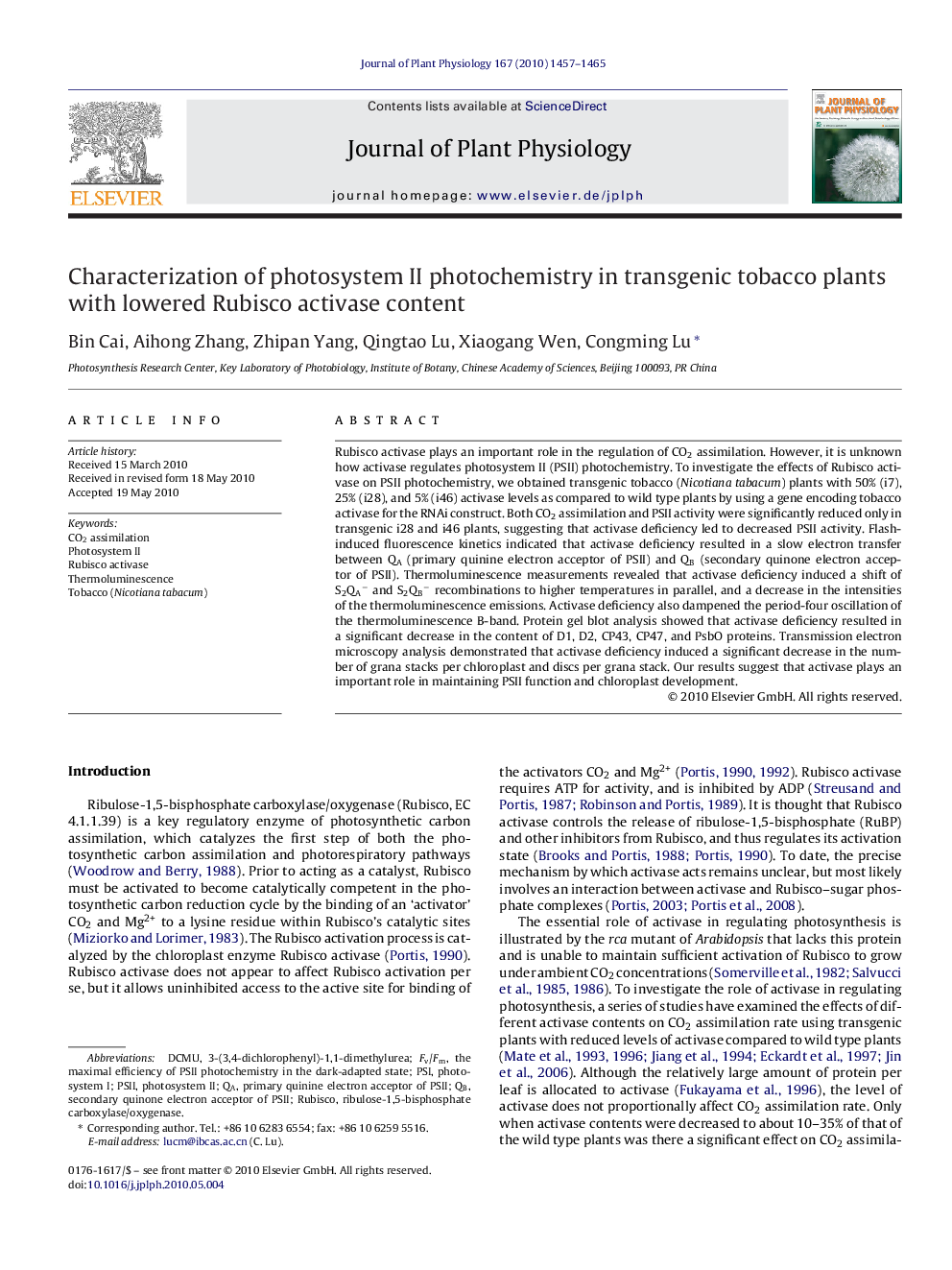| Article ID | Journal | Published Year | Pages | File Type |
|---|---|---|---|---|
| 2057811 | Journal of Plant Physiology | 2010 | 9 Pages |
Rubisco activase plays an important role in the regulation of CO2 assimilation. However, it is unknown how activase regulates photosystem II (PSII) photochemistry. To investigate the effects of Rubisco activase on PSII photochemistry, we obtained transgenic tobacco (Nicotiana tabacum) plants with 50% (i7), 25% (i28), and 5% (i46) activase levels as compared to wild type plants by using a gene encoding tobacco activase for the RNAi construct. Both CO2 assimilation and PSII activity were significantly reduced only in transgenic i28 and i46 plants, suggesting that activase deficiency led to decreased PSII activity. Flash-induced fluorescence kinetics indicated that activase deficiency resulted in a slow electron transfer between QA (primary quinine electron acceptor of PSII) and QB (secondary quinone electron acceptor of PSII). Thermoluminescence measurements revealed that activase deficiency induced a shift of S2QA− and S2QB− recombinations to higher temperatures in parallel, and a decrease in the intensities of the thermoluminescence emissions. Activase deficiency also dampened the period-four oscillation of the thermoluminescence B-band. Protein gel blot analysis showed that activase deficiency resulted in a significant decrease in the content of D1, D2, CP43, CP47, and PsbO proteins. Transmission electron microscopy analysis demonstrated that activase deficiency induced a significant decrease in the number of grana stacks per chloroplast and discs per grana stack. Our results suggest that activase plays an important role in maintaining PSII function and chloroplast development.
